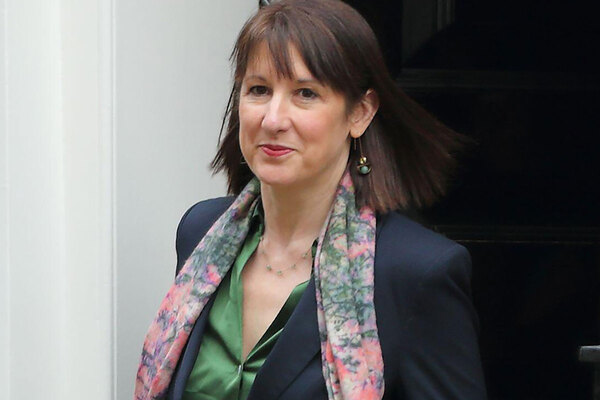You are viewing 1 of your 1 free articles

Jules Birch is an award-winning blogger who writes exclusive articles for Inside Housing
Gove will seek reform, but the multiple crises affecting housing will not be solved with simple slogans
A ‘big beast’ of Whitehall, Michael Gove has been tasked with fixing the vast in-tray of the housing secretary role. He is likely to have his work cut out, writes Jules Birch
So it’s farewell to Robert Jenrick and time to ‘welcome’ a new housing secretary in Michael Gove.
The removal of Mr Jenrick is not a great surprise given a record that includes Westferry, failure to fix the building safety crisis and a flagship policy on planning reform that seems to be sinking. Still more so when he ranked third bottom in Conservative Home survey of grassroots Conservatives on how they see members of the cabinet. Only Gavin Williamson (sacked) and Amanda Milling (sacked) were less popular than him.
But Mr Jenrick also got more money out of the Treasury for building safety than either of his two predecessors and that unpopularity may deserve more respect if it was based on nimby opposition to his planning reform agenda to deliver more homes
The former housing secretary was an early supporter of Boris Johnson and was loyal to the point of defending government policies on talk shows that were then scrapped in U-turns an hour later.
But loyalty is not always what counts in politics and as if to prove the point, Mr Jenrick has been replaced by Mr Gove, the man who famously stabbed Mr Johnson during the Conservative leadership contest in 2016.
The former chancellor of the duchy of Lancaster is the longest-serving current cabinet minister and brings with him cross-departmental clout that will include driving forward the manifesto commitments to deliver 300,000 new homes a year by the mid-2020s and end rough sleeping by the end of this parliament.
Mr Gove was the shadow housing minister before Grant Shapps, so he will be familiar with the issues and the main players, and he will get an early reminder today of the biggest new issue in his in-tray when leaseholders and building safety campaigners hold a rally in Westminster.
However, such an apparently known quantity still leaves plenty of questions about what Mr Gove’s priorities will be and he retains a capacity to surprise (not least on the dance floor).
He comes with a reputation for delivery forged in the cabinet office, but while some of this morning’s papers see his new job as central to the government’s mission to level up, others see it as a demotion or disappointment due to his hopes of higher office.
If his record as education secretary is anything to go by, he will pursue radical reform despite, and maybe even because of, the objections of producer interests. That could be bad news for the housing ‘blob’ in general and large and unresponsive social landlords in particular.
Mr Gove comes from the Policy Exchange wing of the party (he was the first chair of the thinktank) and so can be seen as a natural supporter of planning reform and supplyism, but he was also one of the first prominent Conservatives to start talking favourably about social rented housing again after the bleak years between 2010 and 2016.
Both views were evident in his launch statement for the 2016 party leadership contest: “We need a national ambition to build 100s of thousands of new homes a year, both private and socially rented – led by someone who will not take no for an answer and who will push for diggers in the ground and homes for all come what may.” More recently, however, he was quick to say no to new homes, almost half of them affordable, that were proposed in his own Surrey Heath backyard.
When a developer appealed against the local council’s refusal of permission for development on a site designated for housing in the local plan, Mr Gove appeared at the inquiry with the two-faced argument made by nimbys everywhere. According to leaked footage he said: “People on this video call will know that I’m a government minister and I, of course, will be bound by the conclusions of this hearing. I also recognise the broader imperative to improve housing supply. But I specifically object to this development.”
The mood music suggests that the decision has already been taken to dilute Mr Jenrick’s planning reforms in the face of objections from Conservative MPs. Developers are already assuming as much.
Indeed, according to The Telegraph, Downing Street sources are briefing that he represents precisely the kind of Southern constituency whose Conservative MPs object to the shake-up and that he will listen to their concerns.
If radical reform of planning is out, I wonder if it could open new space for the agenda pushed by one of Mr Gove’s predecessors at the cabinet office.
In his review of build-out rates on large sites, Oliver Letwin began to make the case for reform of the land and housebuilding markets with a greater diversity of tenures and developers.
And Mr Gove hinted at support for this in an interview during the 2019 Conservative Party leadership contest that proposed a new solution. “There would be a national housing fund to get the land we need,” he told The Sunday Times. “We will help fund it by issuing Brexit bonds.”
“Will the H bit of his portfolio really be as much of a priority as the C and the LG as he looks to define and then implement the prime minister’s ‘levelling-up’ agenda and defend the union?”
He also expressed strong support for Mr Jenrick’s ‘build beautiful agenda’ with citizens’ juries helping to ensure good design codes and a programme that would combine “the zeal of Harold Macmillan in building new homes” with a “recognition that we need to revive the garden city approach of the past by making places cherishable and desirable to live in”.
Mr Gove should also give the Ministry of Housing, Communities and Local Government (MHCLG) more clout across Whitehall in driving through a solution to the building safety crisis and in negotiations on the spending review settlement.
However, will the H bit of his portfolio really be as much of a priority as the C and the LG as he looks to define and then implement the prime minister’s ‘levelling-up’ agenda and defend the union?
There are already rumours that the department may get a new name to reflect this. It already has one new minister of state in Kemi Badenoch, but it is not yet clear who the new housing minister will be.
The problem for Mr Gove is that none of the multiple crises affecting housing are going away any time soon and none them can be resolved with simple slogans.
Affordability is severely constrained, demand for social housing vastly outstrips supply, the cut in Universal Credit will mean even more homelessness and post-Grenfell reforms of social housing and those manifesto commitments still need to be delivered.
If none of that matters so much politically, the building safety crisis conflicts directly with the Conservatives’ message about homeownership and will continue to dog the government unless it is resolved soon.
The new housing secretary will have his work cut out for him.
Jules Birch, columnist, Inside Housing
Sign up for our daily newsletter
Already have an account? Click here to manage your newsletters












